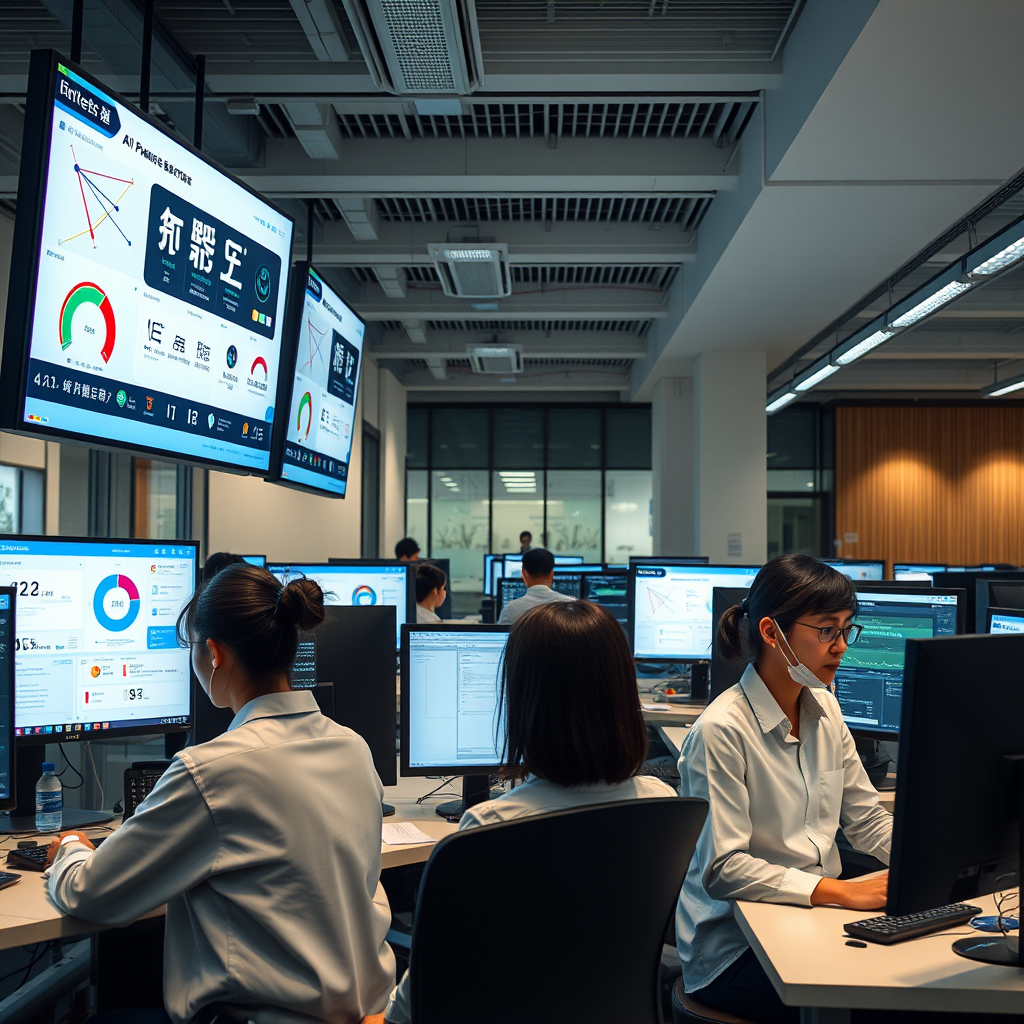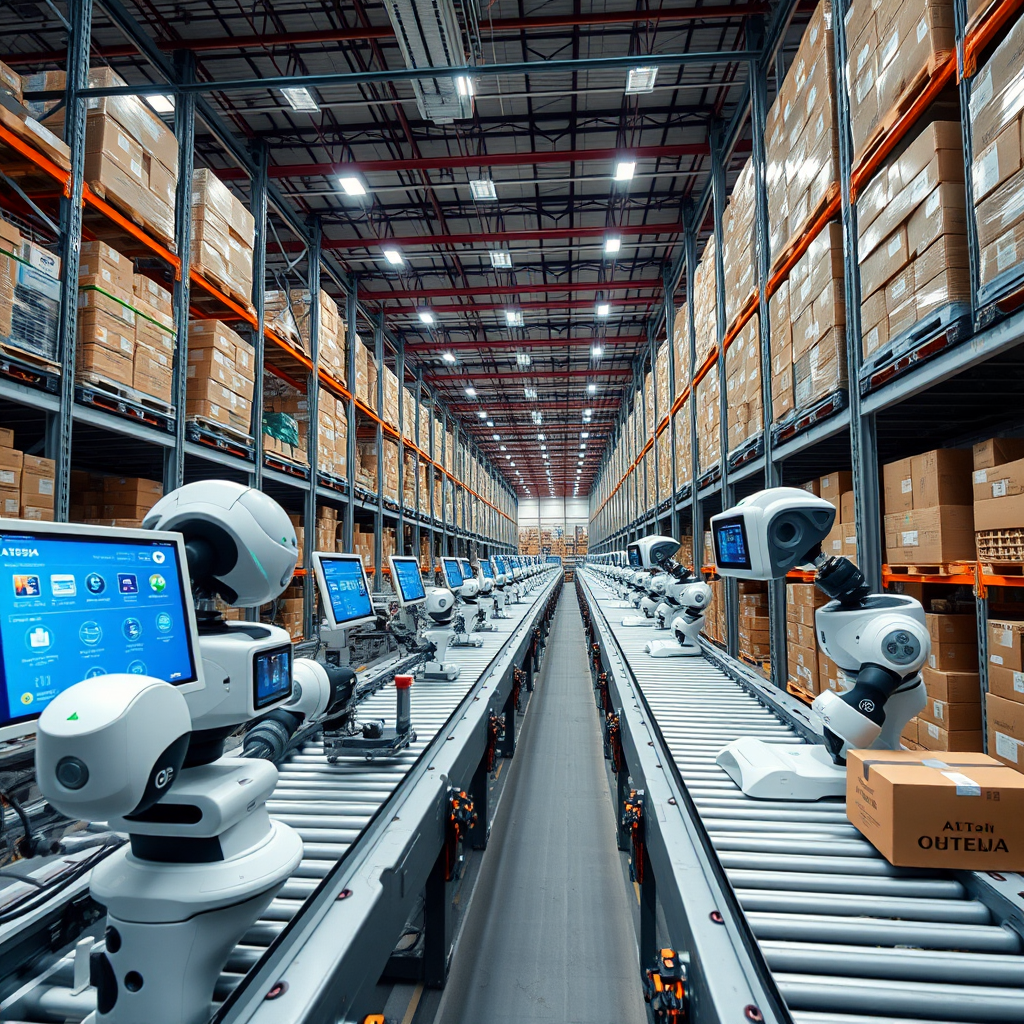How Tokyo Startups Are Leveraging AI Automation to Scale Faster

In the heart of Tokyo's bustling business district, a new generation of startups is revolutionizing how companies scale their operations. Through strategic implementation of AI productivity tools and automation systems, these innovative companies are achieving unprecedented growth rates while maintaining operational efficiency.
This comprehensive case study examines three remarkable Tokyo-based startups that have successfully integrated AI automation into their core business processes, resulting in measurable improvements in productivity, cost reduction, and market expansion.
Case Study 1: TechFlow Solutions - Automating Customer Support

TechFlow Solutions, founded in 2022, faced the common startup challenge of scaling customer support without exponentially increasing costs. CEO Hiroshi Tanaka explains: "We were spending 60% of our operational budget on customer service staff, which was unsustainable for rapid growth."
The company implemented an AI-powered customer support system that combines natural language processing with automated response generation. The results were remarkable:
- 85% reduction in response time from 4 hours to 36 minutes
- 70% decrease in customer support costs
- Customer satisfaction scores increased from 3.2 to 4.7 out of 5
- Support team productivity improved by 300%
"AI automation didn't replace our team – it empowered them to focus on complex problem-solving while handling routine inquiries automatically. This transformation allowed us to scale from 500 to 5,000 customers without hiring additional support staff."
Case Study 2: DataSync Analytics - Streamlining Data Processing

DataSync Analytics, specializing in business intelligence solutions, struggled with manual data processing that consumed 40 hours per week of their analysts' time. Founder Yuki Matsumoto recognized that AI time management course principles could be applied to automate their most time-intensive processes.
By implementing machine learning algorithms for data cleaning, pattern recognition, and report generation, DataSync achieved extraordinary efficiency gains:
- Data processing time reduced from 40 hours to 4 hours per week
- Accuracy improved by 95% through elimination of human error
- Client delivery time decreased from 5 days to same-day service
- Revenue per employee increased by 250%
"The key was understanding that AI productivity tools aren't just about replacing manual work – they're about amplifying human intelligence," notes Matsumoto. "Our analysts now spend their time on strategic insights rather than data entry."
Case Study 3: EcoLogistics - Optimizing Supply Chain Operations

EcoLogistics, a sustainable delivery service startup, faced the challenge of optimizing complex delivery routes across Tokyo's dense urban landscape. Traditional route planning was consuming valuable resources and limiting their ability to scale operations efficiently.
The company developed an AI-driven logistics optimization system that considers real-time traffic data, weather conditions, and delivery priorities. The transformation results speak for themselves:
- Delivery efficiency improved by 180%
- Fuel costs reduced by 45%
- Customer delivery satisfaction increased to 96%
- Operational capacity expanded by 400% with the same fleet size
Key Success Factors and Lessons Learned
Through extensive interviews with these startup founders, several critical success factors emerged that any business can apply when implementing AI automation:
1. Start with Clear Objectives
All three companies began by identifying specific, measurable problems rather than implementing AI for its own sake. They focused on areas where automation could deliver immediate, quantifiable value.
2. Invest in Team Training
Each startup invested heavily in AI time management course training for their employees. This ensured smooth adoption and maximized the benefits of new AI productivity tools.
3. Implement Gradually
Rather than attempting complete automation overnight, these companies adopted a phased approach, allowing for continuous learning and adjustment.
4. Maintain Human Oversight
Successful implementation required maintaining human oversight and decision-making capabilities, using AI to enhance rather than replace human judgment.
Practical Implementation Timeline
Months 1-2: Assessment Phase
- Identify automation opportunities
- Evaluate current processes
- Set measurable goals
Months 3-4: Implementation Phase
- Deploy AI productivity tools
- Train team members
- Monitor initial results
Months 5-6: Optimization Phase
- Refine automation processes
- Scale successful implementations
- Measure ROI and impact
Ongoing: Continuous Improvement
- Regular performance reviews
- Technology updates
- Team skill development
Measuring Success: Key Performance Indicators
The startups featured in this study tracked specific metrics to measure the impact of their AI automation initiatives:
Efficiency Metrics
- Task completion time
- Error reduction rates
- Process automation percentage
Financial Metrics
- Cost per transaction
- Revenue per employee
- Return on AI investment
Growth Metrics
- Customer acquisition rate
- Market expansion speed
- Scalability indicators
Future Outlook and Recommendations
As Tokyo continues to establish itself as a global hub for AI innovation, these case studies demonstrate that successful automation implementation requires more than just technology – it demands strategic thinking, proper training, and a commitment to continuous improvement.
For businesses considering similar transformations, the evidence is clear: AI productivity tools and automation systems are no longer optional for competitive advantage. Companies that invest in comprehensive AI time management course training and strategic implementation will be best positioned to thrive in the evolving digital landscape.
Key Takeaways for Business Leaders
- AI automation can deliver measurable results within 3-6 months when properly implemented
- Success requires combining technology with human expertise and strategic planning
- Gradual implementation with continuous monitoring yields better results than rapid deployment
- Employee training and change management are critical success factors
- Focus on solving specific business problems rather than implementing AI for its own sake
The transformation stories of TechFlow Solutions, DataSync Analytics, and EcoLogistics prove that with the right approach, AI automation can be the catalyst for unprecedented business growth. As these Tokyo startups continue to scale and expand their operations, they serve as inspiring examples for businesses worldwide looking to harness the power of artificial intelligence for competitive advantage.